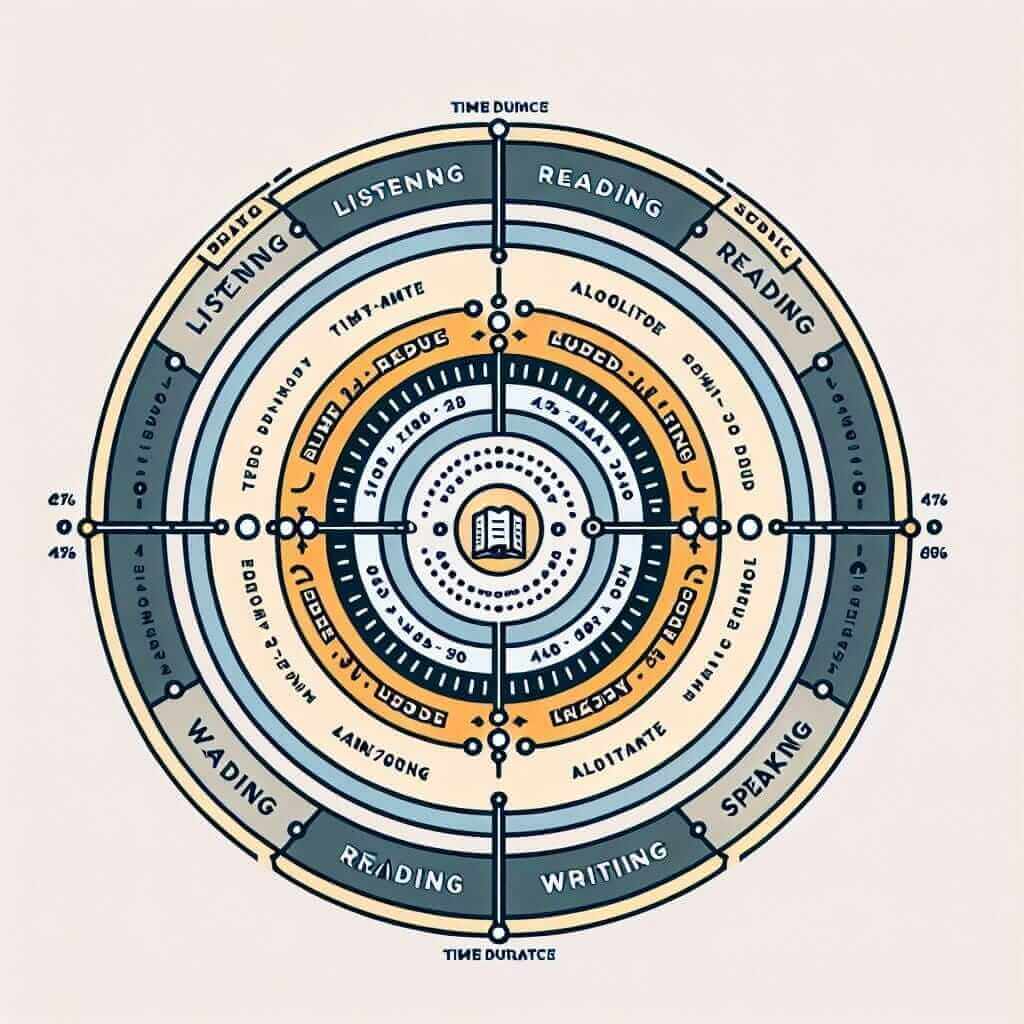Are you planning to pursue higher education or professional registration in an English-speaking country? If so, you’ve likely encountered the term “IELTS Academic Module.” This article serves as your comprehensive guide to understanding this crucial exam, from its structure and content to effective preparation strategies.
Understanding the IELTS Academic Module
The International English Language Testing System (IELTS) is a globally recognized English proficiency test for non-native speakers. The IELTS Academic module is specifically designed for individuals aiming to:
- Study at undergraduate or postgraduate levels: Most universities in English-speaking countries require a certain IELTS Academic score for admission.
- Register for professional bodies: Many professional organizations, especially in fields like healthcare and engineering, demand a specific IELTS Academic score for registration.
Structure of the IELTS Academic Module
The IELTS Academic module assesses your English proficiency across four sections:
1. Listening
- Duration: 30 minutes (+10 minutes for transferring answers)
- Format: 4 sections with 40 questions, featuring a variety of recordings like lectures, conversations, and discussions.
- Example: You might listen to a lecture about the history of photography and answer multiple-choice questions based on the information presented.
2. Reading
- Duration: 60 minutes
- Format: 3 long academic texts with 40 questions, covering various topics like science, history, and social sciences.
- Example: You might read an article about the impact of climate change on biodiversity and answer questions that test your comprehension, such as identifying the writer’s opinion or finding specific information.
3. Writing
- Duration: 60 minutes
- Format: 2 tasks:
- Task 1: Describing visual information (graphs, charts, diagrams) in at least 150 words.
- Task 2: Writing an essay in response to a given opinion, problem, or argument in at least 250 words.
- Example (Task 1): You might need to describe the trends shown in a line graph illustrating the population growth of a specific region over 50 years.
- Example (Task 2): You could be asked to discuss the advantages and disadvantages of online learning compared to traditional classroom education.
4. Speaking
- Duration: 11-14 minutes
- Format: A face-to-face interview with an examiner, divided into three parts:
- Part 1: Introduction and general questions about familiar topics.
- Part 2: Individual long turn where you speak for 1-2 minutes on a given topic.
- Part 3: Two-way discussion related to the topic in Part 2.
- Example (Part 2): You might be asked to describe a memorable event from your childhood and explain its significance.
 IELTS Academic Module Structure
IELTS Academic Module Structure
Common Mistakes to Avoid
- Neglecting Time Management: Each section in the IELTS Academic has a strict time limit. Practice under timed conditions to improve your pacing.
- Ignoring Instructions: Misinterpreting or overlooking instructions can drastically affect your score. Always read instructions carefully before attempting any task.
- Limited Vocabulary and Grammatical Errors: A strong command of English vocabulary and grammar is essential. Utilize vocabulary-building exercises and grammar resources to enhance your language skills.
- Lack of Practice Tests: Familiarize yourself with the test format and question types by taking regular practice tests. This will help you build confidence and reduce exam day anxiety.
Effective Preparation Strategies
- Start Early: Give yourself ample time to prepare, ideally a few months before your target test date.
- Identify Your Weaknesses: Analyze your practice test results to determine areas that require more attention.
- Utilize Reliable Resources: Invest in official IELTS preparation materials and consider reputable online courses or tutors.
- Immerse Yourself in English: Engage with English daily by reading academic articles, listening to podcasts, and practicing speaking with native speakers or fellow test-takers.
Conclusion
The IELTS Academic Module is a significant step towards achieving your academic or professional aspirations. Thorough preparation, focused practice, and a strategic approach will equip you to achieve your desired score. Remember, success in the IELTS is attainable with dedication and the right resources. Good luck!


